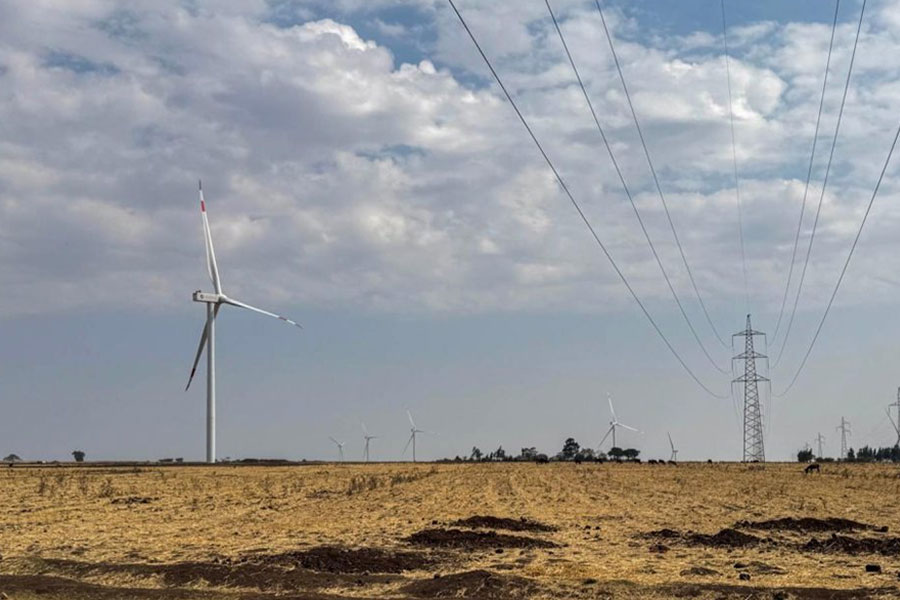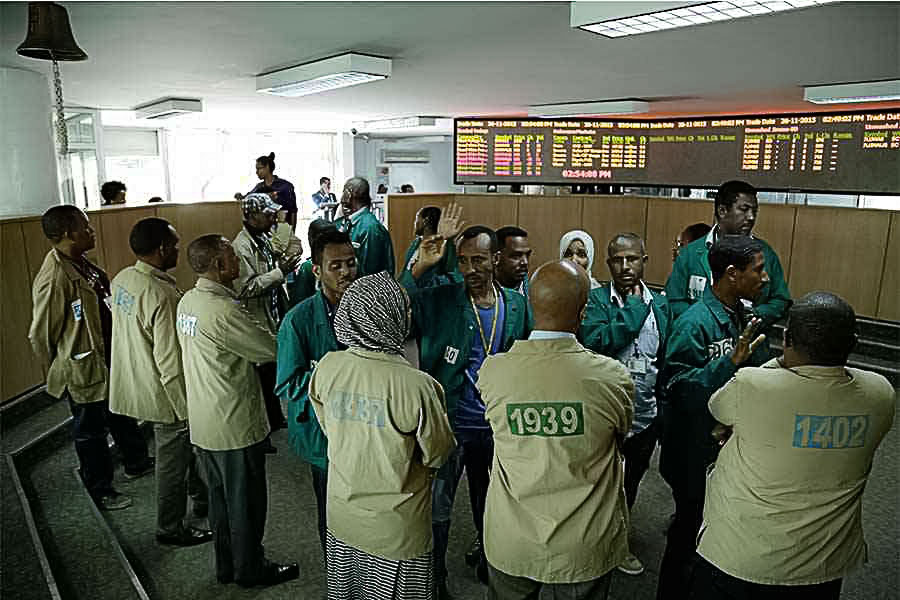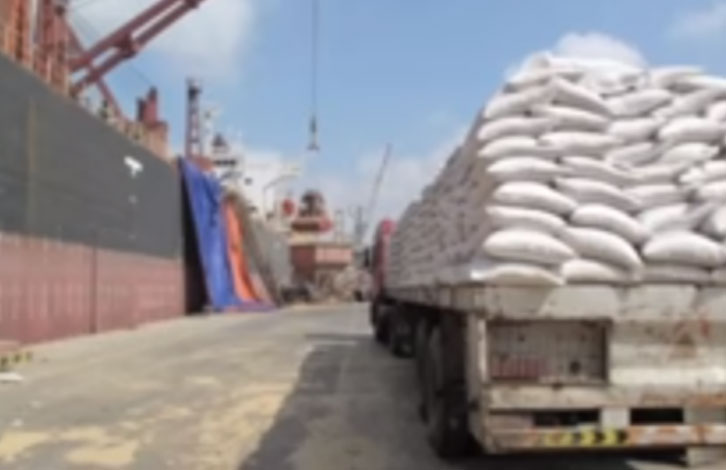
Radar | Jan 21,2023
Three overseas companies won a bid to supply 600,000tn of wheat that will be used for market stabilisation and emergency responses. The government will spend 127.9 million dollars for the procurement.
Martina Mertens Sample, a Turkish company, secured the largest share of the project to supply half of the wheat for 65.9 million dollars. London-based company GemCorp Commodities Trading was awarded the contract to supply a third of the grain for 40.73 million, while Olam International, a Singaporean company, will supply 100,000tn of wheat for 21.27 million dollars.
The Public Procurement & Property Disposal Service is procuring 400,000tn of wheat on behalf of the Ethiopian Trading Business Corporation, while the remaining is for the National Disaster Risk Management Commission. The financial opening for grain was made on May 13, 2020, at the offices of the Public Procurement & Property Disposal Service.
The Ethiopian Trading Business Corporation is procuring 400,000tn of wheat for market stabilisation, and the tender was floated on February 28, 2020. The bid was divided into four lots of 100,000tn of grain each, and 35 companies bought the bidding document. However, only nine of them submitted their proposals, and their technical documents were opened on May 29, 2020.
Five of them, Aplas Importer, AgroCorp International, Hakan Agro DMCC, Martina Mertens Sample and Olam International Limited, reached the financial evaluation stage. Aplas Importer made the lowest offer of 85.2 million dollars for all of the four lots. In comparison, Olam offered 21.27 million dollars, the second-lowest bid, for a single lot. Martina Mertens Sample became the third lowest bidder by offering 65.9 million dollars for three lots.
However, Olam and Martina Mertens were awarded the project since they offered a better price on credit finance and shipping costs, according to Abeba Alemayehu, deputy director of the Service in charge of procurement and contract administration.
The National Disaster Risk Management Commission is procuring the remaining 200,000tn of wheat for humanitarian assistance; the Service announced the bid on April 23, 2020, for two lots of 100,000tn of grain each.
About 46 companies bought the bid document and only eight companies returned the document and reached the technical evaluation stage that opened on May 30, 2020. Hakan Agro, GemCorp Commodities Trading, Ameropa AG, Okapi International General Trading, BCSC Limited, Huyton Inc. Group and Aplas Importer reached the financial opening that was held on May 13, 2020.
Hakan Agro made the lowest offer of 39.45 million dollars for both lots, while GemCorp Commodities placed 40.73 million dollars as an offer to supply 200,000tn of wheat.
But GemCorp Commodities, the second-lowest bidder, was awarded the contract for also coming up with a better price on credit finance and shipping costs.
The main aim of the procurement is to respond to various natural disasters, such as floods and landslides, according to Debebe Zewede, director of public relations at the National Disaster Risk Management Commission.
"It will also be used for those who receive daily assistance," said Debebe.
The winning companies were awarded the contract on May 16, 2020, after being deemed technically and financially qualified. The agreement will be signed on May 25, 2020, if other bidders do not file grievances within the mandatory five-day waiting period.
This procurement was delayed by one month due to COVID-19, since it has resulted in lockdowns in many countries, according to Worku Gezaheng, acting director of procurements at the Service.
In the last fiscal year, on behalf of the National Disaster Risk Management Commission, the Ethiopian Business Corporation and the Ministry of Agriculture, the Public Procurement & Property Disposal Services procured 1.7 million tonnes of wheat from four international companies.
An expert in the sector believes that, in general, importation of agricultural products, especially wheat, has significant economic implications.
Since farmland is widely available and can be cultivated, it is not generally appropriate to import wheat, according to Messay Mulugeta (PhD), a food security and poverty reduction expert and an associate professor at Addis Abeba University’s College of Development Studies.
Ethiopia is among the top three wheat producers in Africa, with wheat accounting for 20pc of the nation’s total cereal production. More than 90pc of Ethiopia’s wheat production is grown on small farms without irrigation, most of which are in the highlands, according to the Global Agricultural Information Network (GAIN) report from the Foreign Agricultural Service of the United States Department of Agriculture.
However, in the current situation bread shortages might occur, so it is important to import wheat, according to Messay.
PUBLISHED ON
May 16,2020 [ VOL
21 , NO
1046]

Radar | Jan 21,2023

Radar | Nov 12,2022

Radar | May 24,2025

Viewpoints | Mar 13,2021

Radar | May 14,2022

Agenda | Apr 20,2024

Radar | Oct 05,2019

Fortune News | Oct 22,2022

Fortune News | Apr 20,2019

Fortune News | Sep 08,2019

Dec 22 , 2024 . By TIZITA SHEWAFERAW
Charged with transforming colossal state-owned enterprises into modern and competitiv...

Aug 18 , 2024 . By AKSAH ITALO
Although predictable Yonas Zerihun's job in the ride-hailing service is not immune to...

Jul 28 , 2024 . By TIZITA SHEWAFERAW
Unhabitual, perhaps too many, Samuel Gebreyohannes, 38, used to occasionally enjoy a couple of beers at breakfast. However, he recently swit...

Jul 13 , 2024 . By AKSAH ITALO
Investors who rely on tractors, trucks, and field vehicles for commuting, transporting commodities, and f...

Jul 5 , 2025
Six years ago, Ethiopia was the darling of international liberal commentators. A year...

Jun 28 , 2025
Meseret Damtie, the assertive auditor general, has never been shy about naming names...

Jun 21 , 2025
A well-worn adage says, “Budget is not destiny, but it is direction.” Examining t...

Jun 14 , 2025
Yet again, the Horn of Africa is bracing for trouble. A region already frayed by wars...